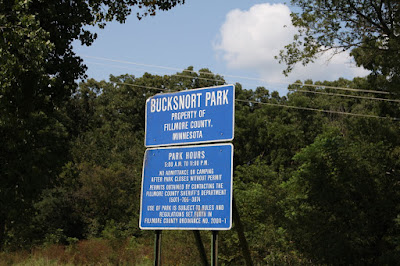Six months ago it was mid-January and I was complaining about snow and cold. These days I’m complaining about heat, humidity, deer flies and thunderstorms. Does that make me a chronic malcontent, or a realist? But complaints don’t change anything so why bother to complain? I could take the same approach to snow shoveling, it’s just going to snow again; vacuuming, the dogs will keep shedding; window washing, they’ll just get dirty again; or eating, I’ll just get hungry again. The answers all seem to come down to priorities and how each of us chooses to live. If you never dust, vacuum or clean, you probably qualify as a slob. If you spend most of your time dusting, vacuuming and cleaning, you probably qualify as a boring person with obsessive-compulsive disorder. And what of those who have been known to rake the wall to wall carpeting after vacuuming? Let’s not even go there.
 |
| ethics: more than rules
Photo by J. Harrington
|
What prompted all this reflection? This morning I came across an article complaining about the inappropriate behavior of many recently "enjoying" the outdoors: Paradise Trashed. It started me thinking about where, how, and from whom folks learn their outdoors manners. I know I didn’t learn mine from my parents, neither of whom was much of an outdoors enthusiast. In school? Not really. The ethics I was taught in school seemed to have limited relevance to hunting, fishing, camping, foraging, etc. I picked up my behaviors from reading writers in "hook and bullet" magazines, from those I spent time with in the outdoors, and from experience.
An angler in a hurry, splashing through trout pools I hoped to fish, spooked the fish before I could cast to them. If I cared about what others thought of me, I wouldn’t act that way. Why bother to be considerate of someone you don't know? While in a duck blind, I learned that “skybusters,” those shooting at out of range ducks, spoiled it for everyone else hunting that marsh. The only apparent solution was to skybust first, and that was neither fun nor productive, but maybe it taught the original skybusters a lesson?
Aldo Leopold, in A Sand County Almanac, writes about a land ethic being the product of a thinking community. From what I can see, these days we have too little of either thinking or community. That's part of the problem we face in a culture and economy that overemphasizes individualism and individual success.
All is not hopeless though. There’s the
- Federation of Fly Fishers Code of Angling Ethics
- Boone and Crockett Club's Fair Chase
- Trout Unlimited has a broad Code of Ethics ranging from conservation to personal integrity
- Leave No Trace has Seven Principles
The Enigma
Falling to sleep last night in a deep crevassebetween one rough dream and another, I seemed,still awake, to be stranded on a stony path,and there the familiar enigma presented itselfin the shape of a little trembling lamb.It was lying like a pearl in the trough betweenone Welsh slab and another, and it was crying.I looked around, as anyone would, for its mother.Nothing was there. What did I know about lambs?Should I pick it up? Carry it . . . where?What would I do if it were dying? The handof my conscience fought with the claw of my fear.It wasn't so easy to imitate the Good Shepherdin that faded, framed Sunday School picturefiltering now through the dream's daguerreotype.With the wind fallen and the moon swollen to the full,small, white doubles of the creature at my feetflared like candles in the creases of the nightuntil it looked to be alive with newborn lambs.Where could they all have come from?A second look, and the bleating lambs were birds—kittiwakes nesting, clustered on a cliff face,fixing on me their dark accusing eyes.There was a kind of imperative not to touch them,yet to be of them, whatever they were—now lambs, now birds, now floating points of light—fireflies signaling how many lost New England summers?One form, now another; one configuration, now another.Like fossils locked deep in the folds of my brain,outliving a time by telling its story. Like stars.
********************************************
Thanks for visiting. Come again when you can.
Please be kind to each other while you can.
No comments:
Post a Comment